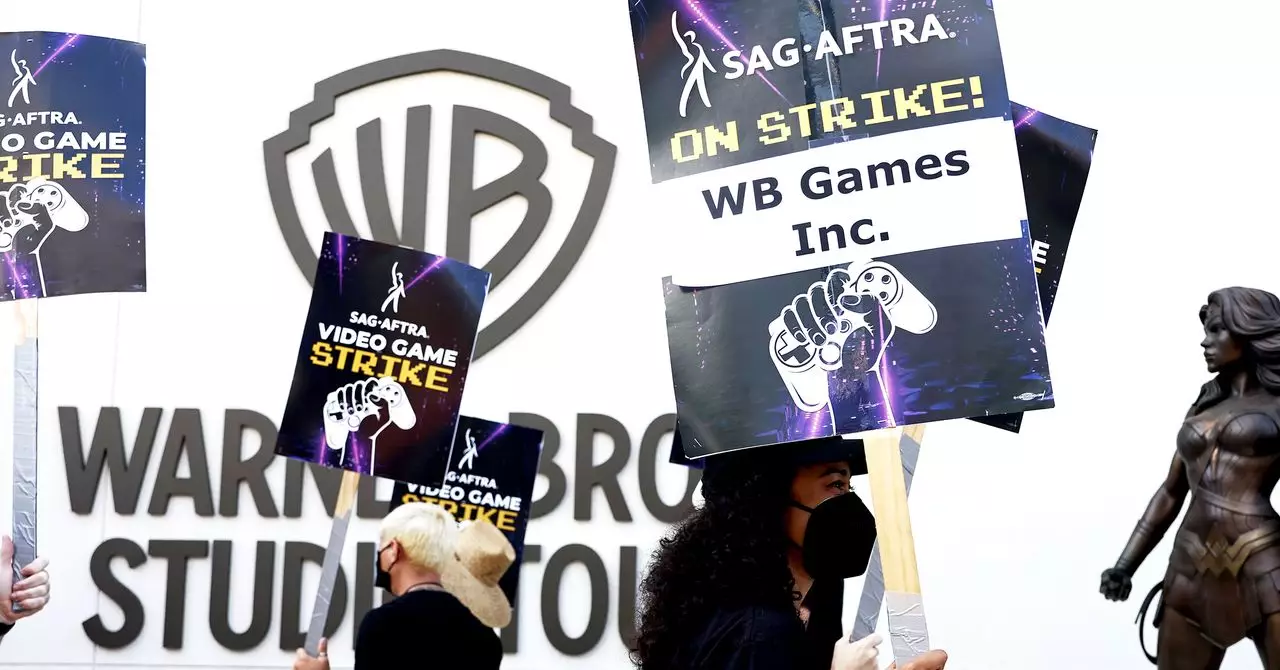The recent ratification of a groundbreaking contract by SAG-AFTRA marks a pivotal moment in the evolution of the video game industry. This new agreement does more than settle negotiations; it sets a precedent for respecting the intrinsic value of human performers amidst rapid technological advancement. With an overwhelming 95% approval rate, it signals an industry-wide acknowledgment that performers are not just interchangeable digital assets but vital creators whose voices, appearances, and insights underpin the authenticity of gaming experiences. This shift confronts the unsettling trend of replacing real actors with AI and establishes clear boundaries to protect artistic integrity.
Rather than lingering in fear of automation, the industry has chosen to recognize talent as a cornerstone of immersive storytelling. The contract guarantees annual wage increases over the next three years, reflecting a commitment to fair compensation and acknowledging performers’ contributions. More importantly, it introduces guardrails designed to prevent the creep of AI manipulation without consent. These policies serve as a beacon for other sectors grappling with similar dilemmas, emphasizing that technological progress should elevate, not erode, human work.
Confronting the AI Threat Head-On
The shadow of AI looms large over creative industries, and the video game space is no exception. Performers have long voiced concerns about their likenesses and voices being co-opted without explicit approval, often in ways that compromise artistic control and ethical standards. As AI tools like ChatGPT and generative digital assets become more sophisticated, the risk of dehumanization intensifies. The new contract responds proactively by requiring explicit consent and disclosure whenever a game company wishes to use a performer’s voice or likeness for AI-driven digital replications. This measure is not merely procedural but deeply rooted in respect for the performers’ rights and creative sovereignty.
In a striking illustration of AI’s intrusion, Epic Games’ attempt to digitally recreate Darth Vader with AI sparked controversy and legal pushback. When AI versions of the character malfunctioned—spewing inappropriate language—the incident underscored how unregulated AI deployment can threaten both reputation and ethical standards. SAG-AFTRA’s swift action to file charges exemplifies a commitment to holding corporations accountable, ensuring that AI use remains transparent and consensual.
Moreover, the contract’s reinforcement of performers’ right to suspend AI-related work emphasizes their ultimate authority over their own digital likenesses. This level of agency is crucial, as it pushes back against a technological arms race where human talent risks being sidelined or undervalued. It affirms that no AI innovation should supersede the human creative process unless performers willingly participate.
Honoring Legacies and Ethical Use
One of the most compelling elements of the newly ratified contract is its recognition of artists beyond their lifetimes. The permission granted to digitally recreate the voice of the late James Earl Jones, for example, illustrates a nuanced understanding of legacy. It demonstrates respect for deceased artists’ contributions while establishing guidelines for future use. Such policies ensure that digital likenesses and voices are treated with the same care as living artists, preventing exploitative practices.
This approach aligns with a broader philosophy that values ethics over expediency. Companies seeking to utilize performances posthumously must navigate a delicate balance—honoring artistic legacies without crossing moral boundaries. The contract fosters a principle of human dignity in the digital age, asserting that technology should serve as a tool for enhancement and storytelling, not erasure or replacement.
Furthermore, the insistence on clear, specific contractual language underscores the need for transparency and accountability. Artists deserve control over how their performances are used, and industry standards must evolve to reflect this reality. The contract’s provisions serve as a powerful reminder: technology should amplify human creativity, not diminish it.
—
By establishing firm protections against AI misuse, the SAG-AFTRA agreement underscores a profound commitment to human artistry in an increasingly digital world. It advocates for a future where creative talent remains at the center of industry innovation, ensuring that technological advancements enhance rather than undermine the human spirit that drives storytelling and entertainment. This milestone demonstrates that respecting performers’ rights is not just an ethical obligation but also a catalyst for sustainable, authentic growth in the world of digital entertainment.

